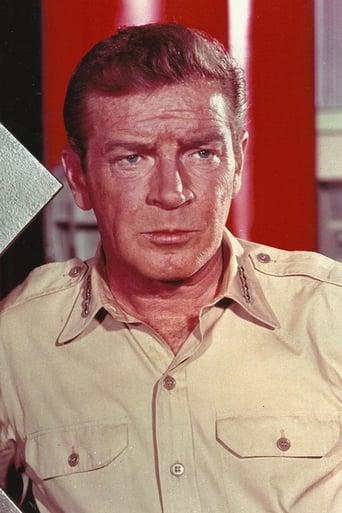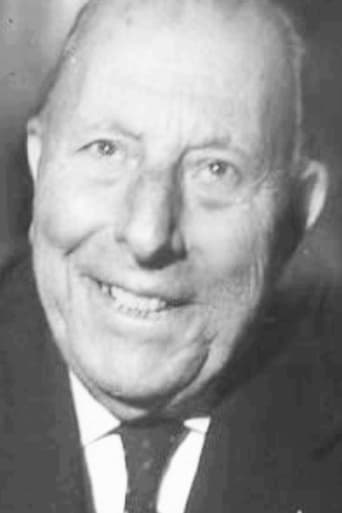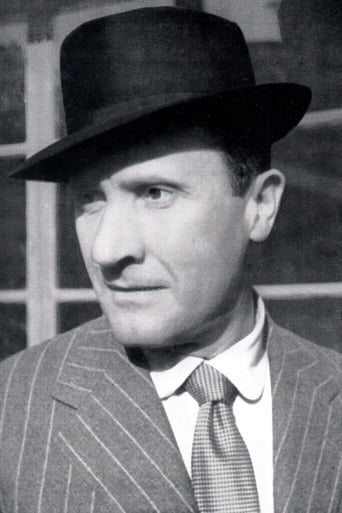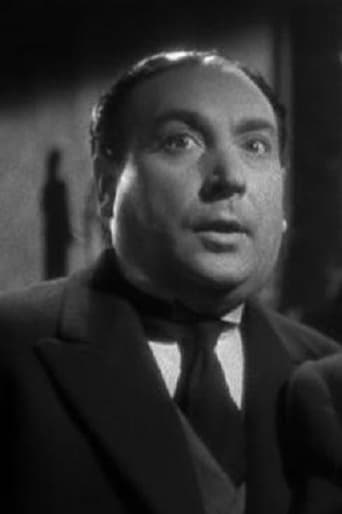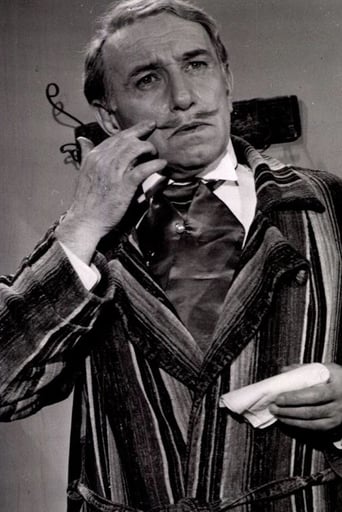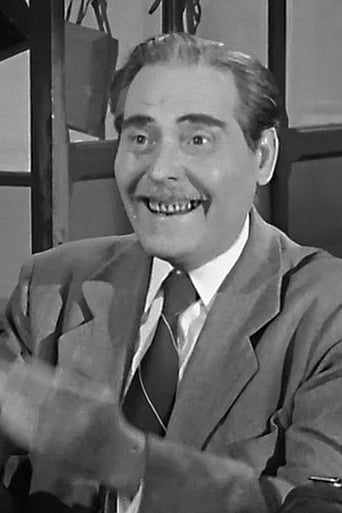Kattiera Nana
I think this is a new genre that they're all sort of working their way through it and haven't got all the kinks worked out yet but it's a genre that works for me.
AniInterview
Sorry, this movie sucks
Hadrina
The movie's neither hopeful in contrived ways, nor hopeless in different contrived ways. Somehow it manages to be wonderful
Deanna
There are moments in this movie where the great movie it could've been peek out... They're fleeting, here, but they're worth savoring, and they happen often enough to make it worth your while.
carlitaantonini
Beautiful movie about the story of how a silly lie to take advantage of others can end up in a distressful nightmare. The prominent men of a small Spanish town decide to fake a miracle to increase the affluence of tourists to this town, long time back famous for its spa. Brilliant treatment of a well spread social reality in Spain as it is the reduction of population of small rural villages. The lack of communication of the town is shown by a daily train that passes by making a lot of noise but without even decreasing slightly the speed. Great treatment of characters. On one side the prominent, arrogant, greedy men of town daring to do anything to get a little more of money and on the other side the innocent, forgotten and needy people daring to believe anything to make their life more liveable. Food for thoughts and feelings. Enjoy!
MONA0825
Before I was able to get this movie, I read a lot of negative criticism about it, especially from people who seem to be very fond of Mr. Berlanga's distinguished career. This early film was marked by controversy and bad blood from the beginning; look at the office number given by IMDb; 236 people viewed it at its release. Yes, only 236 people: talk about box office failure! Berlanga was starting to be a bitter critic of his society at this point; he had already had problems with censorship, but somehow he was able to have his view respected on his previews films. Not with these one. Censorship was so hard that Berlanga requested to feature the name of the Priest who imposed major changes on the script as the actual script writer. It didn't happen that way, but the movie's script had to reflect the changes introduced by the censors resulting in a much watered down picture and quite far from Berlanga's intentions, but still bearing Berlanga's seal. Thus, the film didn't satisfy anybody; neither the catholic censors nor Berlanga's followers.And some of the controversy goes on after 50 years of its release. Fortunately, I'm a casual observer and I can overlook those debates so deeply attached to Spain's tumultuous mid to late XX century life, and take this movie for its sheer value.It's been said that Berlanga's early style reminds that of Frank Capra. You can take "Los Jueves" a little bit like an evil sister to "What a wonderful life". Instead of having a good hearted man who has selfishly influenced the lives around him and is now in disgrace, you have a bunch of mean and really selfish characters (the teacher, the mayor, the doctor, the inn owner and the wealthiest citizen) who are now in disgrace and come with a plan to boost the economy of the once prosperous town of Fontecilla: they will fake the apparition of Saint Dimas and make a huge business out of it. As in "What a wonderful life", you have a celestial intervention to make our protagonists see their lives in retrospective. But instead of having a nice angel in the making, our citizens of Fontecilla will get gangster looking, straight from film noir Richard Basehart, who will make them see the evil of their ways with a very unorthodox method.At the end, everything goes well, faith and goodness triumph, and why should this be a bad thing? In the process, we are highly entertained, the photography is great, the direction is excellent, the pacing is fluid and all the actors are superb, remarkably Jose Isbert and a solid as always Basehart.Give this movie a chance and enjoy it!
ma-cortes
Good film that was beset by difficulties with the censors caused by a relentless critical to Catholic religion and miracles . The movie deals upon a bunch of motley people , the Mayor , the teacher , the pharmaceutic , the doctor who set up a caper about a miracle for profits the village where a spa doesn't work. They persuade to Jose Isbert feigning to have seen a Saint : ¨Dimas¨. Dimas will appear in the person of Richard Basehart who will find the village's dumb played by Manuel Alexandre . In the flick there are especially comedy , humor , joy , satire and social critical which tended not to be very well received by the censor . The movie displays a Spanish star-studded such as : Jose Luis Lopez Vazquez ,Juan Calvo , Manuel Alexandre, Jose Isbert , Alberto Romea ; Italians : Paolo Stoppa and one American , Richard Basehart , married to Italian Valentina Cortese who starred ¨Calabuch¨ along with Edmund Gwenn and equally directed by Berlanga .Direction by Luis Garcia Berlanga is pretty good , assistant direction is Jesus Franco . Franco Ferrara's music is excellent . Fine cinematography in white and black by Francisco Sempere . Berlanga's conceptual and political audacity, so evident in this film , ¨Los Jueves, Milagro¨ (1957), was modified by the censors and was delayed for several years before its eventual release . He filmed other polemic movies during the 50s as ¨Bienvenido Mister Marshall¨ (1953) and considered to be one of the best Spanish films of the history . Their next joint venture was ¨Plácido¨ (1961), which received an Oscar nomination in 1963. That same year, Berlanga made one of his best films: ¨El Verdugo¨ (1963); however, his strong portrait of Spanish society didn't please the pro-Franco authorities, although the film was well-received at the Venice Festival. He continued filming other interesting pictures as in 1973 he went to Paris to begin filming ¨Grandeur nature¨ , another problematic film , focusing this time on the fetishism of a man who falls in love with a doll . Several years later, after Franco's death, he filmed a trilogy comprising ¨La Escopeta Nacional¨ (1978), ¨Patrimonio Nacional¨ (1981) and ¨Nacional III¨ (1982), where he clarified the disorders evident in the Spanish upper middle-class upon being confronted with a new political status quo . Following the same theme he filmed a peculiar comedy titled La Vaquilla (1985), set in the Spanish Civil War . Rating : 6,5 above average . Well worth watching .

